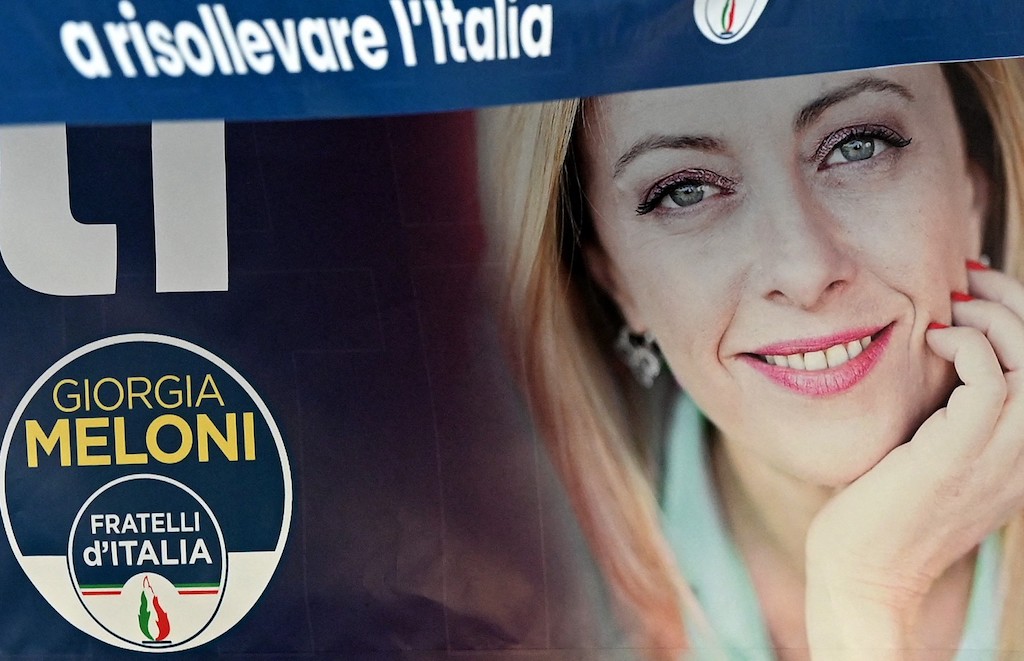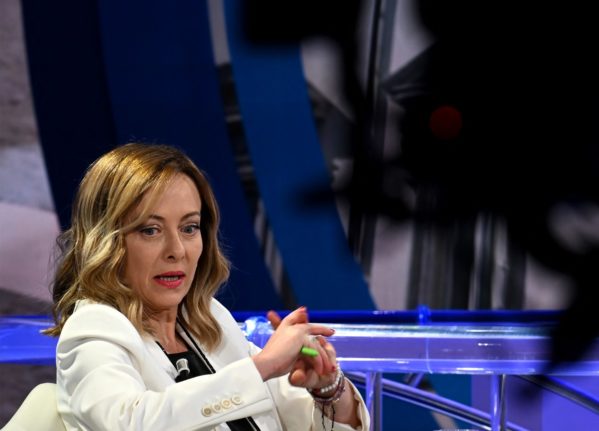RAI, which has several TV and radio stations and is funded in part by a licence fee, abruptly cancelled a monologue on Fascism by a renowned writer due to be broadcast on Saturday ahead of Liberation Day on April 25th.
Critics have for months claimed RAI has appointed figures ideologically close to Meloni’s government, the most right-wing since World War II, dubbing it “Telemeloni”.
And the decision to pull Antonio Scurati’s monologue, in which he accused Meloni’s party of rewriting history, sparked widespread outrage.
READ ALSO: How much control does Giorgia Meloni’s government have over Italian media?
“This RAI is no longer a public service but is being transformed into the megaphone of the government,” said centre-left Democratic Party leader Elly Schlein, echoing a phrase used by RAI’s journalists’ union.
Meloni herself, who leads the far-right Brothers of Italy party, denied censorship on her part – and responded to the row by posting Scurati’s monologue on her Facebook account.
She suggested Italians decide for themselves, while making clear what she thought of him.
“Those who have always been ostracised and censored by the public service will never ask for anyone’s censorship,” she wrote.
“Not even those who think that their propaganda against the government should be paid for with citizens’ money,” she added, referring to claims that Scurati wanted to be paid too much.
‘Long live anti-Fascist Italy!’
April 25th is an emotional time for many Italians, marking the insurrection in 1945 that reclaimed several northern cities from Nazi invaders and their Fascist collaborators, and the liberation of the rest of the country by the Allies.
In his monologue, Scurati accused Meloni’s party of “trying to rewrite history”, by blaming the worst excesses of the Fascist rule on its collaboration with Adolf Hitler’s Germany.
Meloni told parliament when she took office that she never felt any sympathy for regimes including Fascism, led by Italian dictator Benito Mussolini between 1922 and 1943.
But her party grew out of the roots of the Italian Social Movement (MSI), formed by supporters of Mussolini after the war, and still uses the MSI flag in its logo.

On Sunday, Scurati read out his monologue to a live audience in Naples – and accused Meloni of painting a “target” on his back by using her platform to “personally attack” him.
The Strega-prize winning writer ended his speech by echoing a call from some in the audience: “Long live anti-Fascist Italy!”
‘Unhealthy climate’
As a public broadcaster whose top management has long been chosen by politicians, RAI’s independence has always been an issue of debate.
But the arrival in power of Meloni, who formed a coalition with Matteo Salvini’s far-right League party and the late Silvio Berlusconi’s right-wing Forza Italia, has redoubled those concerns.
Just months after she took office, RAI’s then chief executive Carlo Fuortes – appointed by former premier Mario Draghi – resigned, complaining of a “political conflict” over his role.
In his place the government appointed Roberto Sergio, who said he intended to air “a new narrative”.
In December, senior RAI editor Paolo Corsini was heavily criticised after appearing at a Brothers of Italy meeting, where he aligned himself with Meloni’s party.
And earlier this month, the European Federation of Journalists expressed concern at a change in rules on political balance allowing more air time for ministers discussing government business on RAI ahead of the European Parliament elections.
One RAI journalist, who spoke to AFP on condition of anonymity, said “the climate is unhealthy”.
This weekend, the union of RAI journalists, Usigrai, accused managers of trying to “silence” Scurati and of a wider “suffocating control system that is damaging RAI, its employees and all citizens”.
But the director general of RAI, Giampaolo Rossi, on Monday hit back, condemning the idea of censorship as “completely baseless”.
He said an investigation had been launched into how Scurati was cancelled – while condemning “surreal reconstructions” surrounding “yet another attempt at aggression towards RAI”.
The broadcaster’s schedule aimed at guaranteeing the “greatest possible heterogeneity of stories”, he insisted.
By Alice Ritchie



 Please whitelist us to continue reading.
Please whitelist us to continue reading.
Member comments